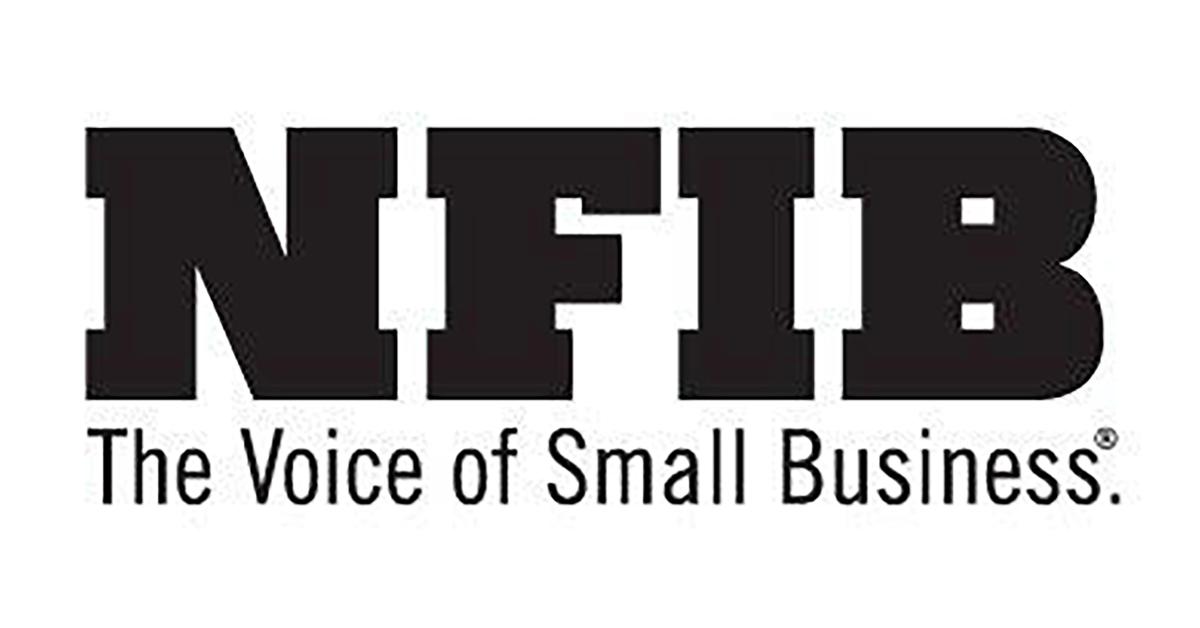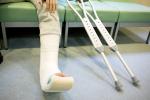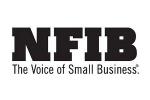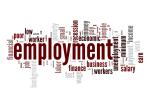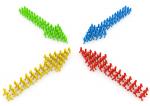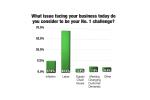WASHINGTON — The National Federation of Independent Business (NFIB) Small Business Optimism Index decreased by 1.1 points in April to 89.0. This marks the 16th consecutive month below the survey’s 49-year history of 98. Labor quality was the top business problem at 24%, with inflation in second place by one point at 23%.
“Optimism is not improving on Main Street as more owners struggle with finding qualified workers for their open positions,” says NFIB Chief Economist Bill Dunkelberg. “Inflation remains a top concern for small businesses but is showing signs of easing.”
In the NFIB’s monthly jobs report, owners reported their plans to fill open positions remain elevated, with a seasonally adjusted net 17% planning to create new jobs in the next three months. Seasonally adjusted, a net 40% reported raising compensation. A net 21% plan to raise compensation in the next three months. Nine percent cited labor costs as their top business problem and 24% said that labor quality was their top business problem.
Other key findings of the NFIB’s study include:
- The net percent of owners raising average selling prices decreased four points to a net 33% (seasonally adjusted).
- The net percent of owners who expect real sales to be higher deteriorated four points from March to a net negative 19%.
- The frequency of reports of positive profit trends was a net negative 23%, five points worse than March.
- A net negative 5% of owners viewed current inventory stocks as “too low” in April, down six points from the month before. This suggests stocks are now too large relative to expected sales.
The frequency of reports of positive profit trends was a net negative 23%, five points worse than in March. Among the owners reporting lower profits, 29% blamed weaker sales, 20% blamed the rise in the cost of materials, 13% cited the usual seasonal change, 10% cited labor costs, 9% cited lower prices, and 4% cited higher taxes or regulatory costs. For owners reporting higher profits, 51% credited sales volumes, 16% cited higher prices, 15% cited usual seasonal change, and 4% cited lower labor costs.
A net negative 9% of all owners (seasonally adjusted) reported higher nominal sales in the past three months, down three points. The net percent of owners expecting higher real sales volumes deteriorated four points to a net negative 19%.
The net percent of owners raising average selling prices decreased four points from March to a net 33% (seasonally adjusted), the lowest since March 2021. Unadjusted, 12% reported lower average selling prices and 48% reported higher average prices. Price hikes were the most frequent in construction (59% higher, 7% lower), retail (59% higher, 8% lower), wholesale (54% higher, 14% lower), and finance (52% higher, 5% lower). Seasonally adjusted, a net 21% plan price hikes.
The NFIB Research Center has collected Small Business Economic Trends data with quarterly surveys since the fourth quarter of 1973 and monthly surveys since 1986. Survey respondents are randomly drawn from NFIB’s membership. The report is released on the second Tuesday of each month. This survey was conducted in April 2023.
Have a question or comment? E-mail our editor Dave Davis at [email protected].
